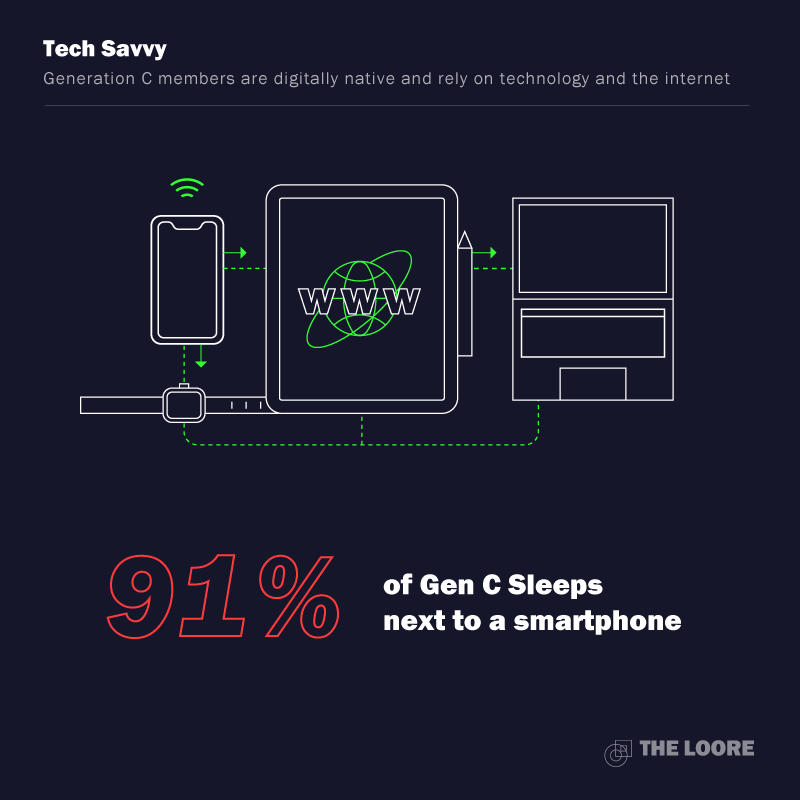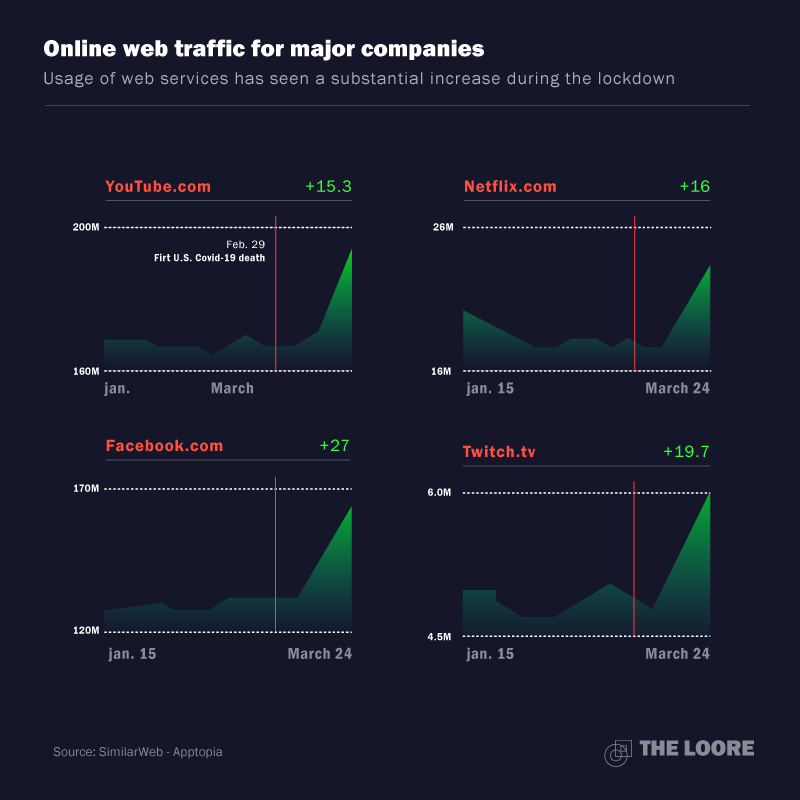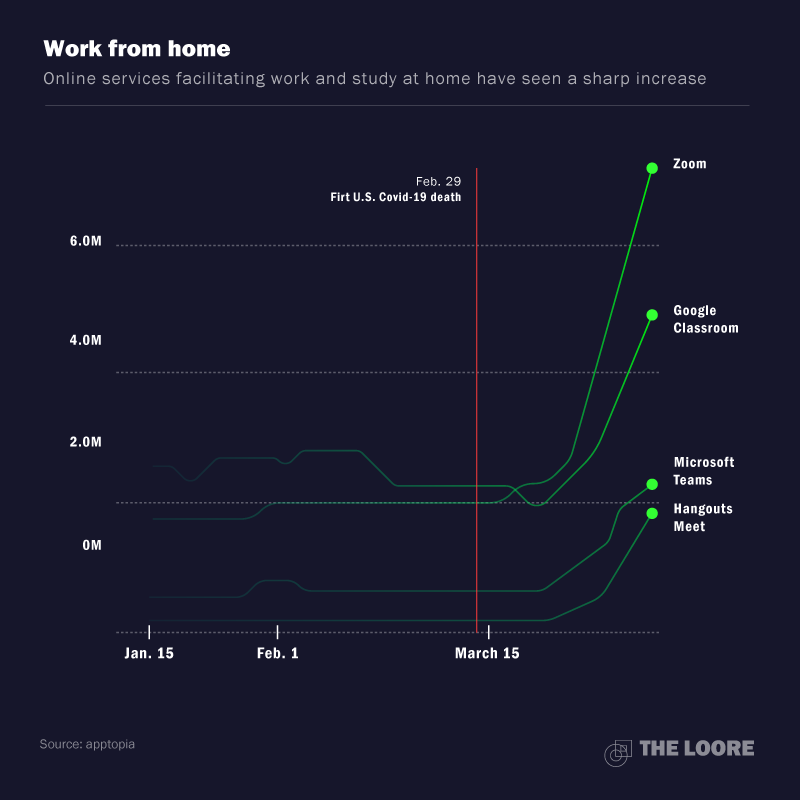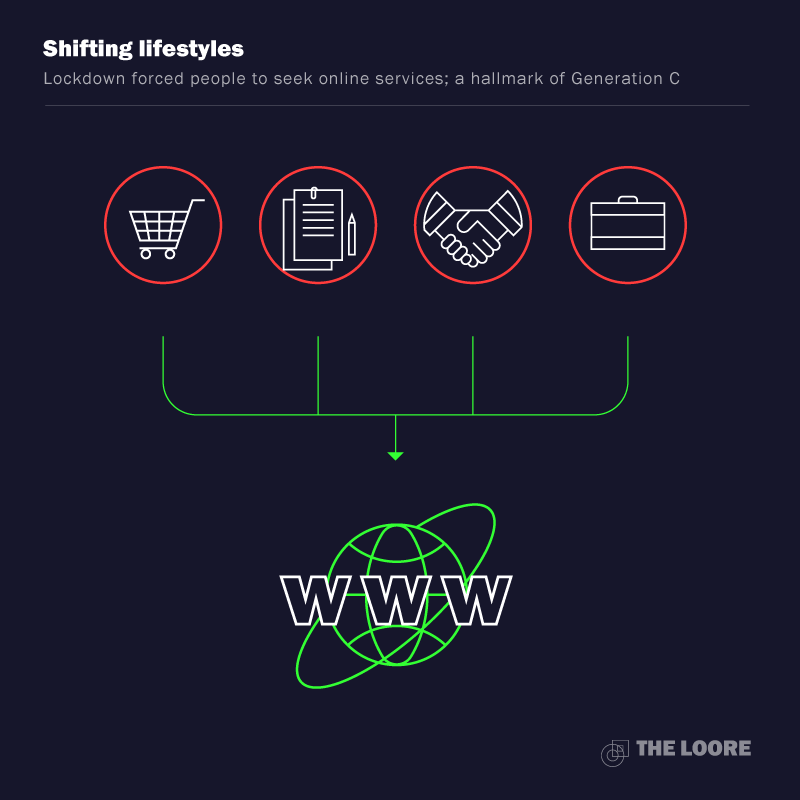Amidst the COVID-19 pandemic, and the forceful shift towards more online platforms to complete our daily tasks and responsibilities; the relevance of a new demographic generation is coming to the forefront – Generation C.
Defining this generation has divided researchers, they haven’t been able to provide consensus on what its characteristics exactly are and whether it exists or should exist. The “C” stands for creation, curation, connection, and community; a major point being that they are constantly connected online. In the “psychographic” definition, it’s the shared state of mind by members of the generation.
Generation ‘C’onnected?
It’s not about the age, but the shared interests linking members of this generation.
Members of Generation C share a similar trait of being digitally literate, and instinctively connect to the internet; It’s not bound by age, but how integrated they are with technology. Meaning, a 15-year-old and a 95-year-old can both be part of this generation as people who are exceptionally ‘Tech Savvy’; constantly sharing data and staying connected with everyone and everything. According to studies done by Google/IPSOS/NowWhat and others:
- 90% create content for the net at least monthly
- 83% have posted a picture online
- 76% visit YouTube weekly
- 59% look to the internet as their main source of entertainment
- 56% have followed through after watching ads on YouTube
- 55% are connected to 100 or more people through social media

How has the coronavirus shifted our reliance for online platforms?
As the majority of countries enacted lockdown measures, the internet saw a massive boost as billions of people stuck at home, found ways to work and entertain themselves online. According to US web-infrastructure company Cloudflare, internet usage for the first 3 months of 2020 has seen an increase by 25% in major cities. Additionally, online service sites recorded a spike in demand as many people work, play, and order online much more frequently, as a result of “stay at home” measures. The video conferencing software Zoom saw a boom as more people made use of its service in “the first two months of 2020 than in all of 2019”. Gaming service Steam also recorded an increase of 25% compared to February, logging in more than 24 million players at one point. Moreover, other popular sites like Facebook, Netflix and YouTube have seen an increase of 27%, 16% and 15.3% for website traffic.

Work after COVID-19
The result of being locked at home compelled companies and businesses to adopt the “work from home” culture, in order to keep work flowing without substantial interruption. According to a graph published by J. Clement, the “Interest in remote working related search terms during COVID-19 outbreak March 2020” using google search stats;the number of people expressing interest in working from home or accessories that facilitate remote working, have seen an increase from a score of 50 to 100 from February 23 to March 20 for the search “Remote Working”, and an even more significant increase for “Work from home” from a score of 17 to 89 by the same period of time. Moreover, many companies have expressed interest in keeping part of their workforce completing their jobs at home, indicating a probable shift to more sophisticated “remote working” programs as demand for it increases. In light of these measures, we can theoretically say that the majority of people conforming to the idea of working from home are members of Generation C.

A boon for Generation C
Although the lockdown generally wasn’t received with any enthusiasm, we can only imagine that the Generation C might have been able to adapt faster than others in going online because of how connected and digitally native they already are. They would not have as much problems in making use of the internet and online services to make their lockdown more tolerable, from online shopping to working from home using different software; they can manage themselves better than others in completing tasks, work, buying online and connecting with others related to social life and work . Moreover, the lockdown also compelled people to learn more about different online services and manage some of their responsibilities through using them.

Did the COVID-19 lockdown boost the credential for finally defining Generation C?
